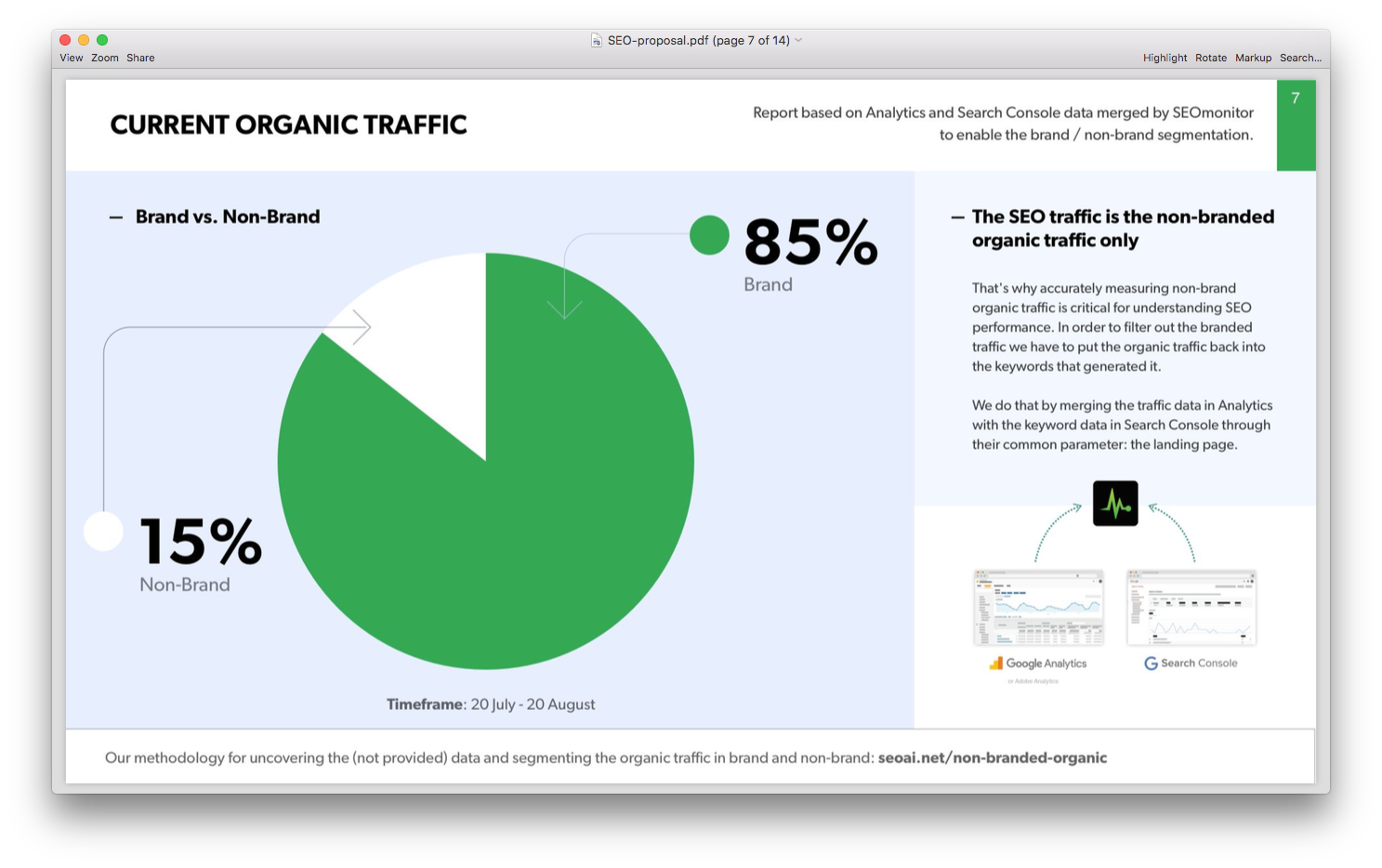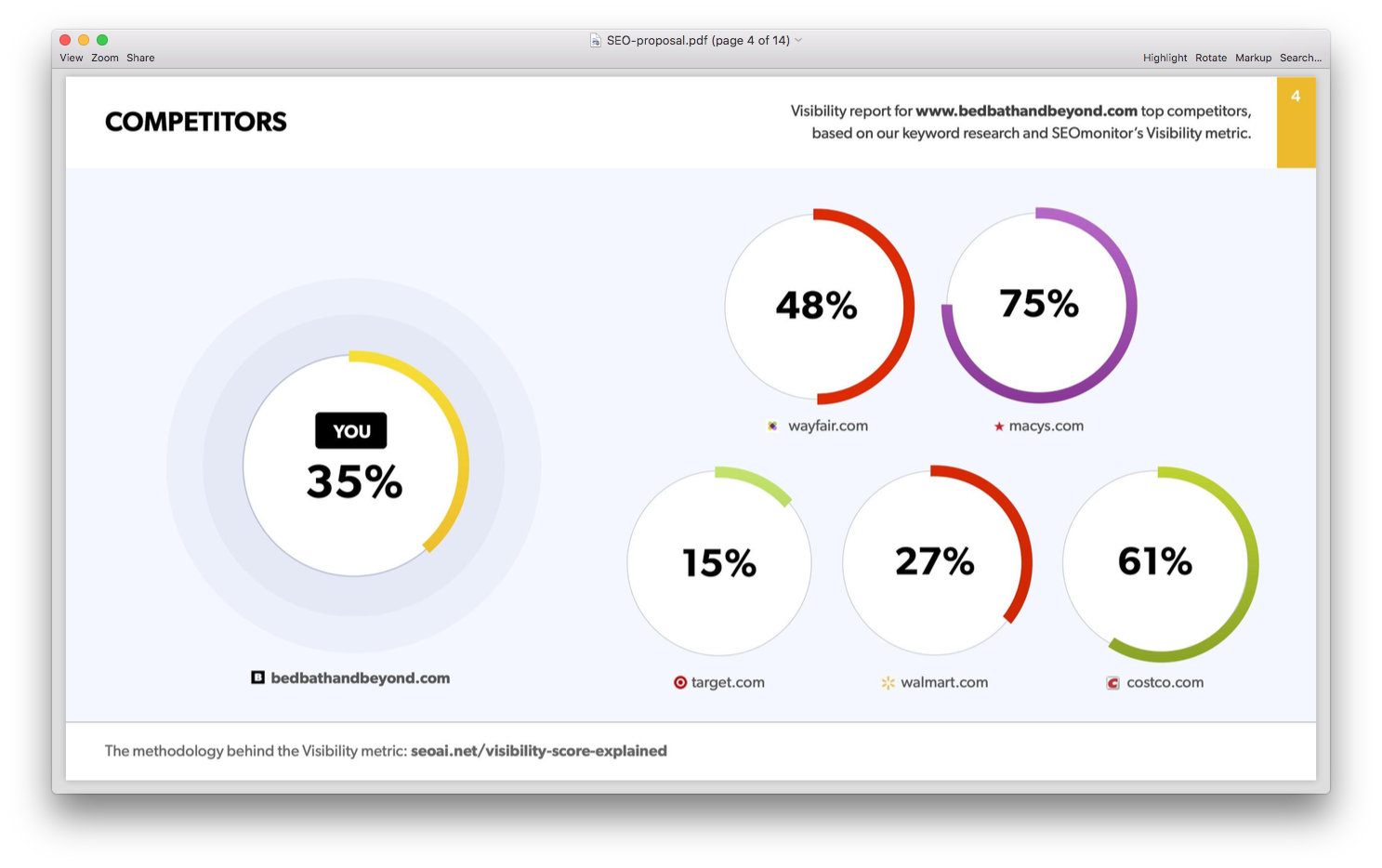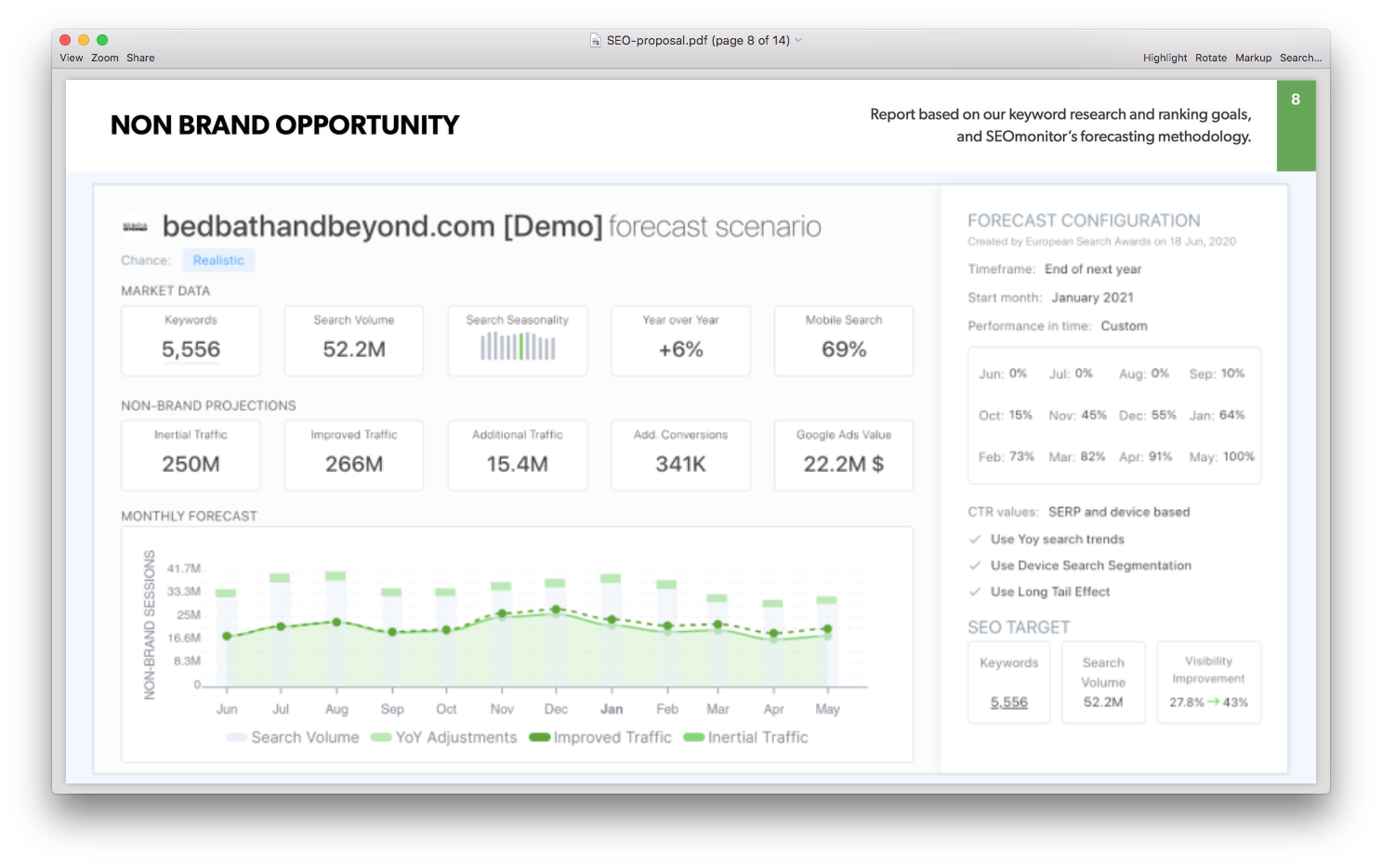Does this situation sound familiar to you?
A big brand on your market is putting out an RFP. Realizing your opportunity to score a huge client, your team prepares with a thorough pre-sales process, creating a strong proposal.
Or perhaps they directly ask for a proposal from your agency, being referred to you by a former client.
Although you’ve done your homework, the answer seems to be tardy.
You keep watching your inbox for that reply.
No luck.
We spoke with several agencies who have all successfully won large clients to find out how they approach the process both within a pitch and as an agency specializing in Fortune 500 companies.
Brian Patterson, CEO & Co-founder of Go Fish Digital, Eleni Ireland, President & COO of Digital Current, and Lee Stuart, CEO of I.O, all shared their tips for how independent agencies can win big clients in this competitive landscape.
Why Are You Getting a Silent No When It Comes to the Big Companies?
There is this thing called a barrier to entry that Investopedia defines as all the factors preventing or impeding newcomers in a market or industry sector, thus limiting competition.
When it comes to winning a big client – whether in a pitch or through a direct recommendation – you’re probably hindered by one of these barriers:
- Not being able to signal trust due to lack of a big client in your agency portfolio.
- Not being familiar with the intricacies of procurement and RFPs.
- Not having the necessary data to make your case.
To win a Fortune 500 brand over, you need to show how your capabilities can benefit them in ways that are advantageous to your processes. You can do this by emphasizing your agility, efficiency, and a deep understanding of their business objectives.
Let’s look at some key ways that can help independent agencies get the attention they deserve from big clients (especially if they’ve never worked with one before) — as mentioned in our research.
Strategies to Get You Noticed By Big Clients
Use the ‘Land & Expand’ Strategy
Think of your SEO agency as a small, invading army: you first need to land somewhere (anywhere!) and establish a foothold, then you can work on gradually expanding your control over the landscape.
Lee Stuart explains it this way:
“You need to seize on the opportunities and show everything that the client needs to do. Start doing trials with clients if you’re just getting started, even with low fees or next-to-nothing fees, and prove your value, because what matters is the referral. How the clients talk about you is the most effective way to build that portfolio.”
So, if you have the opportunity to work on a one-off brief from a big client, take it.
If there’s an offer to do a simple technical audit, do it, and get one foot in the door. If they’ve already worked with you once, large corporates will be much more likely to use you again for future (and even bigger) projects.
“Aim to be the preferred supplier,” Stuart adds.
Don’t forget to lead with your strengths!
As an SEO agency, you have in-depth access to search data and the necessary know-how to paint the whole competitive landscape with non-brand organic traffic. You need to be their consultant from the start, after all both Ireland and Stuart highlight the importance of positioning the agency as an extension of the in-house marketing team.

No matter the approach, you must signal trust, avoid over-promising, show data and results, and truly understand your stakeholder.
Highly Customize Your Offers
To succeed in a corporate RFP, always keep the client’s judging criteria in mind, and who you’ll be being judged by.
Remember that, when you pitch or respond to RFPs, it’s not the CMO who judges the proposal. Usually, it’s the client’s procurement person.
Always think of what the decision-maker will look for, then tailor-fit a proposal to impress them with how well you’ve answered their RFP, point by point.
When asked how his agency approaches big brands, Brian Patterson says that they do it in a way that’s highly customized.
“We try to perfectly match their requests, versus a more templatized response,” Patterson said.
Patterson’s advice is to have your pre-sales and sales process focus on exactly what’s indicated in the RFP. Your proposal should match their expectations, and be written in a way that can be easily understood, even by non-SEO professionals.
Why? Because, “You’re going to get scored by someone who doesn’t understand SEO, and then by the direct ‘buyer’,” he said.
Moreover, the procurement officer may already his or her mind set. In this case, it will take an extra convincing effort that your agency is the one fit to handling their projects.
Eleni Ireland says that Digital Current also customizes its offers, by having multiple stages in the discovery phase to understand the client’s business metrics, goals, and objectives (e.g., average order value, LTV, profit margins, new and existing users, current conversion rate, etc.).
Only when they have a firm grasp of the client’s business goals supported by the data are they able to craft a highly competitive proposal.
The bottom line?
When customizing your offers:
- Keep clients’ priorities, criteria, and decision-makers firmly in mind.
- Articulate what makes your agency the right fit for their particular need.
If you need some inspiration to get you started on your SEO proposal, here you can see pitching examples from SEO agencies around the world.
Conduct a Pre-Audit
Eleni Ireland also talks about the need for a pre-audit during the proposal stage. Digital Current uses this pre-audit to assess the health of the website and any potential toxic backlinks holding the site back, that helps craft a data-driven proposal.
“The pitch process is very costly for us,” Ireland explains. But it’s worth it, as it’s a deal-closing strategy focusing on the right metrics, evaluating the business objectives, and understanding the client’s target audience and their buyer’s journey.
To establish the whole truth of their status, consider using search visibility as a proxy for “market share” – calculated as an impression share on their targeted keywords weighted against search volume and presented in contrast with their online competitors. Pointing to a relatable benchmark, you’ll be able to create a realistic SEO proposal, while making them understand how your efforts will impact their business.

Convince Big Clients That You’re the Right Choice
There are multiple ways to convince big companies to consider (and choose!) your agency in a pitch. But no matter the approach, you must signal trust, avoid over-promising, show data and results, and truly understand your stakeholders.
Look for the ‘Human Factor’
Stuart advises agencies to first ask: “How can we help stakeholders succeed better within their organization?”
“SEO is a team game, so even in the pitch process understand what the stakeholder wants and needs,” he said. You want to help the in-house SEO or digital marketer achieve the targeted business metrics.
This means understanding:
- What their working system is.
- How hands-on they are.
- What makes them tick on a personal and professional level in order to establish rapport and answer their needs.
It will be a strong advantage in building trust at first sight.
Do the due diligence, Stuart also says.
- Take the time to understand the company’s financial status (are they growing or are they just getting started in the digital environment?).
- Use your network to assess the stakeholders.
- Search for what their consumers talk about – read the reviews, comments, forums.
Signal Trust
To win big clients, you have to show relevant results from your past campaigns, ideally from the client’s own industry. Especially in RFPs, companies are particular about the specifics of your past experience.
If a client asks for a specific industry case study that Go Fish Digital hasn’t worked on in the past, they’ll instead go for a similar industry or project example.
For instance, if your client is looking for global telecom experience, show them your SEO work in the aviation industry, instead, and demonstrate how this previous experience is applicable to their niche.
“We’re thinking more in terms of problem-solving than in terms of closing the deal,” Patterson said. “So you need to find something they can relate to back to their project. They want to feel good that you can handle their projects.”
Don’t Overpromise & Don’t Do Everything ‘As Requested’
It’s good to signal trust, but there’s also a fine line when it comes to over-promising. To avoid this, Patterson makes sure that all the players in the room are specialists.
Digital Current also has every project handled by an account manager with deep digital marketing expertise, ready to consult and add more subject-matter experts from the agency as the business requires.
Plus, as Lee Stuart argues, you need to “avoid suggesting anything that you can’t determine a value for, avoid theory, especially trivial SEO optimizations that only generate negligible % uplifts, instead focus on measurable impactful work. Idea > Test > Verify.”
And, as he adds, you shouldn’t be afraid to disagree, as “clients are paying you for your expertise and will appreciate your candor if you can demonstrate why you don’t think something will work and offer a better solution.”
To make your proposal more palpable, consider creating forecast scenarios that estimate the impact in terms of clicks and conversions instead of rankings so that you highlight how your intervention can improve business performance. You’ll talk in shared KPIs and clarify how you fit in their company.

Show Data & Performance Metrics
You can also convince prospective clients by showing case studies right from the start.
Past achievements are the best predictor of future successes. Showing your previous performance metrics from your most successful (and relevant) campaigns is a great way to prove your competency.
For instance, Digital Current presents their in-depth process of understanding the target audience through persona development and buyers journey workshops with multiple stakeholders — from marketing and sales to operations — as a success predictor. Bringing all the stakeholders together is a tough process, but an advantage in having a single version of their business truth.
If you can show the data and analytics that demonstrate how you can improve their conversion rate, clients will be much more likely to choose you over other agencies — even bigger ones.
Know When to Say NO
Ireland also stresses the importance of saying no to clients that refuse to be transparent.
If the clients won’t provide access to data, they’re limiting your effectiveness as an agency. Much like any relationship, there needs to be a certain give-and-take to be useful.
And, continuing on that note, as Stuart underlines, you should hold your ground – don’t do all that the client wants.
Say they’re coming to you because they’ve seen AMP is a popular thing. But you know it’s not good for their business model. Explain why and continue building that trust. They’ll appreciate it.
So, How Do You Win Big?
In a world where large agencies may have access to more resources, manpower, and network, you should leverage your independent agency strengths to compete and win big clients.
In a nutshell, the strategies to help you are as follows:
- Use the “Land and Expand” strategy to gain a foothold with bigger corporates.
- Understand the “human factor” – what stakeholders need to do their job better and reach their own KPIs inside the company.
- Create highly customized offers that appeal to the decision-makers (who are not always the in-house SEO experts).
- Conduct a pre-audit to gain perspective on client objectives, show your SEO expertise, identify their issues, and propose relevant solutions for their business.
- Convince big clients to choose you by “signaling trust” – assuring them of your abilities through the success of your past campaigns in the same or similar industries or with the same type of projects.
With these strategies, independent agencies can successfully compete with other industry players to win big brands and Fortune 500 clients.
At SEOmonitor, we understand the complex challenges of winning a big pitch. That’s why we developed a forecasting methodology that helps you set realistic SEO goals while presenting business scenarios to your clients.
You’ll be able to make them understand how their traffic can look with and without the proposed SEO campaign and how that translates to sessions, clicks, and conversions.
This is just a part of our solutions to help SEO agencies acquire, manage, and retain more customers.
Start winning big clients
with our unique Forecasting module!
The opinions expressed in this article are the sponsor's own.



